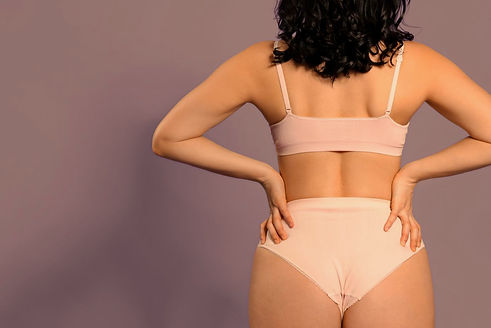FAQs

FAQs
- 01
Because of the risk of irritation and the high likelihood that a spray tan will become splotchy or discolored, we will not do spray tanning on clients with a sunburn.
- 02
Tanning products are generally considered sage. But, because of the drastic changes in hormones during the 1st trimester of pregnancy, it is possible that a spray tan will become patchy and uneven. And, during the 2nd and 3rd trimesters, as the hormones settle down, there is a risk of uneven pigmentation.
While tanning products are generally considered safe, there has not been extensive study done on the effects of inhaling the spray particles.
If you are pregnant, we require that you consult with your doctor before getting a spray tan.
- 03
Some medications can cause your skin to become photosensitive. This means that when you have direct exposure to sunlight, you might experience painful sunburns or blisters. For many of these medications, such as SSRIs, spray tans are recommended as a safe alternative to sun tanning and tanning beds.
Some medications can cause your skin to become more sensitive and easily irritated. Some medications can have negative interactions with other medications, chemicals, foods, etc. For medications such as these, spray tans are not recommended.
We are not medical practitioners and cannot know the exact reactions every drug can have. We highly recommend that if you are taking any medication, you speak with your doctor prior to scheduling your appointment.
Conversely, your doctor may not know the specifics of what can make a spray tan go badly. Your doctor may approve you getting a spray tan because it is physically safe, not knowing that there could be a reaction that ruins your tan. For example, Retinol or Retin-A can make you sensitive to sunlight, and many doctors recommend spray tanning as an alternative to sun tanning. But, these medications can also react with ingredients in tanning solutions and cause your skin to turn orange.
To make sure you stay healthy and safe AND that you get a beautiful tan, we are happy to coordinate with your doctor to determine the best option.
- 04
Spray tanning releases particulate into the air. There is little research on the short-term and long-term effects of spray tanning on the respiratory system. And, it is possible to provide some protection to your airways during a session
If you have asthma or a respiratory condition, we require that you consult with your doctor before getting a spray tan.
- 05
We will not do spray tanning on clients who have psoriasis, eczema, or very dry, flaky skin because there is an increased risk of irritation and it is highly likely your tan will become splotchy and discolored.
We will do spray tanning for clients with rosacea, because it can neutralize the redness and help make your skin tone appear more even.
- 06
The tanning solutions we use contain DHA derived from sugar. There is a chance that a spray tan can cause blood sugar levels to rise.
If you have diabetes, we require that you consult with your doctor before getting a spray tan.
- 07
Oily Skin
Oily skin can be very challenging. When applying the spray tan, the solution appears to sit on the surface of your skin, when it should be absorbing. The results look wet, rough, and speckled. But, not to worry! It should all even out after your first shower.
Dry Skin
If a spray tan has been applied to dry skin that is flaky, then the DHA will cause the dry patches to become much darker, resulting in a splotchy look. Thorough exfoliation will help remove the dead skin cells. In some cases, a thick cream or lotion can be applied to the dry, rough areas to create a protective barrier.
Sensitive Skin
Sensitive skin is prone to irritant contact dermatitis - meaning, this skin type tends to have an inflammatory response due external application of certain products. Perfumes and cosmetics that contain parabens or often irritating to those with sensitive skin. Our tanning solutions do not contain alcohol or parabens, so are less likely to cause irritation.
If you have oily, dry, or sensitive skin, we recommend that you first book a consultation & spot test session so we can determine the best option for your skin.

